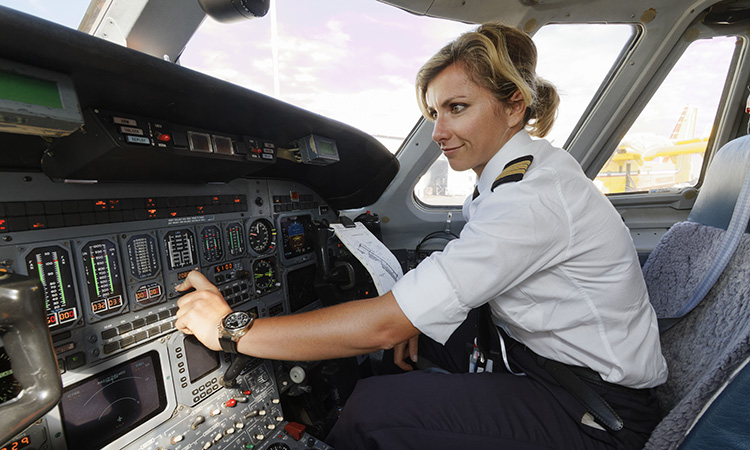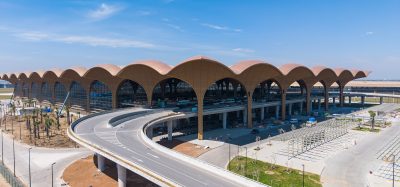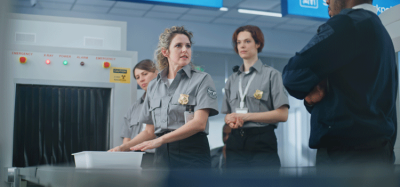Building back better with diversity and inclusion at IATA
Posted: 8 March 2021 | International Air Transport Association (IATA) | No comments yet
On International Women’s Day 2021, the International Air Transport Association (IATA) discusses its commitment to 25by2025, the industry-wide diversity and inclusion initiative to increase the number of women in senior positions and the number of women in under-represented jobs by 25 per cent by 2025.


We are reminded of the need to build back better from the pandemic with diversity and inclusion at the heart of our industry’s restart efforts”
The impact of COVID-19 on the aviation industry has been unprecedented. Passenger demand collapsed by 66 per cent in 2020 compared to 2019, the worst ever decline in history, and the airline industry is expected to remain cash negative in 2021. In 2020, we estimated that 46 million aviation jobs and those dependant on aviation were at risk. But the pandemic will eventually pass, travel will return and our industry will recover. As we mark International Women’s Day 2021 (8 March 2021), we are reminded of the need to build back better from the pandemic with diversity and inclusion at the heart of our industry’s restart efforts.
Continued commitment to IATA’s 25by2025
The travel and tourism sectors are highly feminised. However, for the aviation industry, it is less so at senior levels, as well as for technical and operational roles”
The livelihoods of 11.3 million people around the world directly depend on aviation. Another 76.4 million more jobs are in the aviation-dependent tourism sector. By the end of 2020, we estimated that some 4.8 million aviation jobs were at risk.
The travel and tourism sectors are highly feminised. However, for the aviation industry, it is less so at senior levels, as well as for technical and operational roles. For example, female pilots are estimated to make up six to nine per cent of the pilot population, and there are still very few female airline CEOs, with Lynne Embleton recently appointed as Chief Executive of Aer Lingus.
We recognise that the current level of diversity is far from ideal. That is why the International Air Transport Association (IATA) launched 25by2025 in 2019. 25by2025 is an industry-wide diversity and inclusion initiative which focusses on:
- Increasing the number of women in senior positions by either 25 per cent against currently reported metrics or to a minimum representation of 25 per cent by 2025
- Increasing the number of women in under-represented jobs (e.g. pilots, operations) by either 25 per cent against currently reported metrics or to a minimum representation of 25 per cent by 2025
- Reporting annually on key diversity metrics.
To date, 57 signatories have committed to 25by2025, and it is very encouraging that, despite the challenges presented by the COVID-19 outbreak, we have seen several airlines commit to 25by2025 over the course of 2020. These include All Nippon Airways and Malaysia Airlines.
Diversity and inclusion makes business sense
Embracing diversity and inclusion is also essential for business success”
The road ahead for the aviation industry will be challenging. We estimate that passenger demand will return to 2019 levels in 2024. Until then, airlines have many hurdles to overcome, including lower demand, increased operating costs and ensuring that they have sufficiently skilled and licenced employees available as demand and flights pick up. Embracing diversity and inclusion is also essential for business success. According to the McKinsey report ‘Women Matter’, “companies where women are most strongly represented at board or top-management level are also the companies that perform best”. Hence, it makes good business sense to continue to focus on diversity and inclusion as we restart the industry.
Within IATA, we have also been working on increasing female representation in senior roles. The number of female senior leaders and directors has increased in recent years from 16 per cent to 22 per cent. This is fueled by our strong commitment to 25by2025. Nonetheless, we recognise that there is still much that needs to be done to make sure that IATA is truly diverse and inclusive, and that is largely the situation across the industry.
Next steps
Changing the diversity balance for the industry cannot be achieved in isolation, and 25by2025 is critical in bringing like-minded organisations in the industry together. The strong commitment of various stakeholders underpins the need to bring change and collaborate for talent in the industry, rather than competing for it.
Over the next few months, we will be working with our partners on defining best practices and lessons learned to inspire action for a more diverse and inclusive industry”
Over the next few months, we will be working with our partners on defining best practices and lessons learned to inspire action for a more diverse and inclusive industry. We will then report at the next IATA Annual General Meeting (AGM) on the industry’s diversity metrics, which will allow us to track the impact of 25by2025 and the industry’s diversity and inclusion progress over time.
We have a full agenda ahead of us as we prepare to emerge from the COVID-19 crisis. This includes building back better with an industry that is much more diverse and inclusive. At IATA, we continue to be committed to 25by2025 and, on this International Women’s Day 2021, we invite our partners who have not done so to join us in this important journey of addressing the gender balance in our industry.
The International Airport Summit is open for registration!
Date: 19 – 20 November 2025
Location: JW Marriott Hotel Berlin
At our flagship event of the year, we will dive into the future of airport operations, with expert-led sessions on passenger experience, innovative smart technologies, baggage handling, airside operations, data, security, and sustainability.
This is where global airport leaders come together to share insights, challenges, and real-world solutions.
Limited complimentary passes are available for eligible professionals – first come, first served!
Related topics
COVID-19, Movers and appointments, Recruitment and training, Tourism, Workforce


















